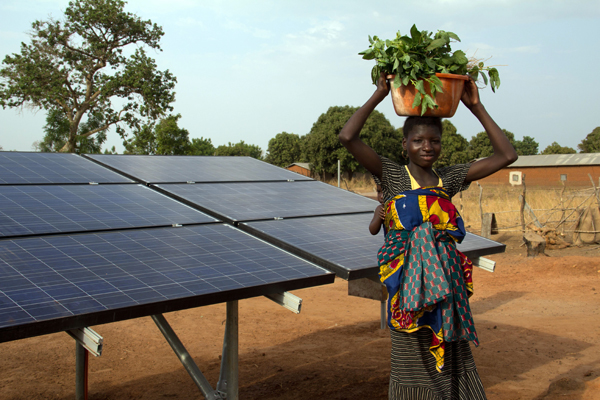- 20.03.2023
- Ecological justice
- Array
A new report by Recourse, TrendAsia and CIEL (Center for International Environmental Law) urges the World Bank Group (WBG) to shift its financing policy and practice from fossil fuels invesments towards supporting renewable energy economies. In the context of climate change, the report reiterates how critical it is for countries to set a clear and rapid pathway for transition to a sustainable renewable energy future. This will require a combination of short-term investment to meet the current needs to deliver 2030 targets, while planning for investment in long term deep decarbonisation of the economy over the following decades.
The World Bank Group has financed and incentivised up to $165 billion in fossil fuel investments since the Paris Agreement was signed. However, a combination of global scientific consensus and international political agreements now requires the WBG to act as a global standard setter for both public and private financial institutions towards the rapid transition to a renewable energy economy. WBG has a critical role in this context and must channel its resources, capacity building and policy guidance to renewable energy investments. This should be consistent with global climate objectives as well as social and human rights safeguards. Low- and middle-income countries will require finance sourced from public, private and multilateral institutions, to take them on this trajectory.
This report sets out a methodology for the WBG to align its investments, policy advice and capacity building with the Paris Agreement, to lead the way on investing in a thriving renewable economy for the countries it invests in. At the same time the WBG and other International Finance Institutes (IFIs) should be supporting client countries to deliver Sustainable Development Goal 7 (SDG7) and 5 (SDG5) to provide universal sustainable energy access by 2030 and contribute to gender equality. Ideally a coherent approach across IFIs using this methodology aligned with science-based targets, and national energy transition plans can provide countries with the confidence, capacities, and resourcing to transition their energy sector to renewable and zero carbon energy security while providing access for all.
This methodology is presented in three sections:
- Section 1: Trajectories for 1.5oC – delivering Paris alignment
- Section 2: Taxonomy with social and environmental accountability: definitions for zero carbon, renewable economies
- Section 3: Delivering ‘whole economy’ just transition across all WBG investments and advice
The methodology takes a rights based approach. Its starting point is that it is currently the poorest and most vulnerable who are suffering the most from climate change, despite doing least to cause it. The transition should happen in a way that does not further place the burden and costs on those same communities – women, indigenous, marginalised – either when land is used for renewable energy projects, or resources mined for the minerals necessary for the transition or when sources of livelihood and access to basic needs are put at risk because of irresponsibly implemented greenfield renewable energy projects. Also without further burdening low income countries with increased debt and hardship. Rather the energy transition should benefit these groups through increased energy access, decent work, enhanced natural environment and thriving local and national economy.
How to use this methodology to hold WBG to account
This methodology has been developed to support civil society to hold the World Bank Group (WBG) to account for alignment of its whole portfolio, policy and practice to the Paris Agreement on Climate Change and delivers a sustainable renewable energy economy which provides energy for all. The methodology takes a human rights approach, which should not further burden low-income countries or marginalised people with increased debt and hardship.
This methodological approach aims to ensure that:
- The World Bank aligns its investment, policy advice and capacity building with the Paris agreement to tackle climate change effectively.
- The answer is a fully sustainable renewable energy powered economy. There is no room for fossil fuels (fossil gas, oil, coal) and false solutions – such as carbon capture, usage and storage and storage (CCUS), blue hydrogen, nuclear, large hydro – if we are to keep global temperature rise within the 1.5C trajectory.
- The energy transition should happen in a way that does not further place the burden and cost of the transition on communities who had done least to cause climate change, including women and indigenous peoples.
The methodology has three components to test the effectiveness of the WBG commitment: trajectory, taxonomy and a whole economy approach. Paris alignment will require the WBG to deliver on all three aspects. Each section sets a fundamental element that is needed to drive the scale and urgency of transition, while building a thriving renewable energy economy for all.
Read the methodology, including the full set of recommendations, here.

